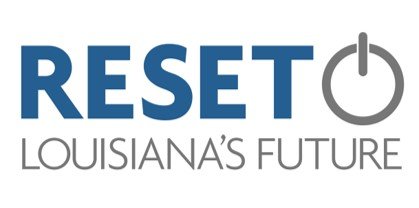The Tax Foundation, an independent national tax policy organization, recently released a new report on individual income taxes. Its study found that Louisiana’s top income tax rate is higher than what you see in most of the southern and regional states we compete with for jobs. That doesn’t sound encouraging, but as is often the case, there’s more to that story than meets the eye, and it’s something we can fix.
Louisiana is generally considered a low-tax state, so it’s a little surprising to look at the Tax Foundation’s most recent map of states’ top marginal individual income tax rates and see that Louisiana’s rate of 6% is higher than just about anyone near us.
A few states like Texas, Florida, and Tennessee don’t have individual income taxes, but the other states in our region do, and our rate is higher than almost all of them. That seems somewhat confusing because if you look at another metric from the Tax Foundation, Louisiana’s Tax Freedom Day, we pay off all our state, federal, and local taxes, earlier than all but two states.
So if our tax burden is so low based on that indicator, can our income taxes actually be that high? The answer is yes and no.
Louisiana has three tax brackets – 2%, 4%, and 6% – and they kick in at various income levels. That 6% rate is indeed higher than just about all of our peers. But what that doesn’t show is that Louisiana has large deductions most other states do not have and generously placed tax brackets that give us an effective tax rate that is significantly lower than most states.
For those of us who live here, that doesn’t matter much because we simply file our taxes and take the deductions and it all works out. But what if you are a company looking to locate here and you’re looking at tax rates, or a person considering a low-tax state to retire in? In those cases, Louisiana doesn’t look so good, and the perception is that we are not as competitive as we really are. And, by the way, that lack of competitiveness is also true for our corporate income taxes.
That’s why it is encouraging that this year, key legislative leaders are planning to introduce legislation to address that situation and others that hurt our competitiveness and make our tax structure more complicated than it really needs to be.
The notion of tax “reform” could be alarming to some. After all, who really wants politicians opening the can of worms that taxes can be. But the truth is, we have a tax structure that puts us at a disadvantage compared to other states, while we have an overall tax burden that in many ways actually makes us quite attractive.
The solution is embodied in the principles that CABL, PAR, and the Committee of 100 for Economic Development have championed through our RESET Louisiana initiative. That is to simplify our tax structure, eliminate big deductions that most states don’t have, and lower our tax rates to put them more in line with what we actually pay. And do it in a way that is revenue neutral and keeps most people’s taxes about the same as they are.
That’s one of the major efforts that will be undertaken this session along with attempts to simplify the collection of sales taxes to ease that burden on businesses, and revisit the local inventory tax and the state’s corporate franchise tax.
There are complications to doing any of these things and some will be more difficult than others. But the fact is, Louisiana does not have a tax structure that serves the state well, even though it has a state tax burden that is highly competitive with other states.
People and businesses get anxious when they hear about efforts to “restructure” taxes. That’s to be expected. But if we can simplify our tax system, make our state more competitive, and keep our tax burden the same as it is, everyone wins.
That is a major step forward that we can, and should, accomplish this year.

